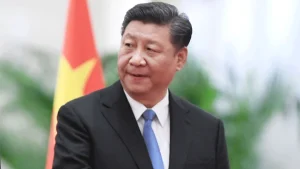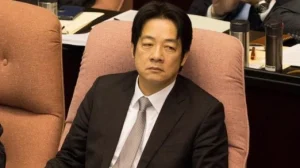US Inserts Itself into China-India Relations Amid Waning Legitimacy for Backing Israel
Recent general elections in India have brought back Prime Minister Modi to a third term in power. The election results are a reflection of the complex democratic processes which are shaping Indian society. These processes are not very well understood outside of India partly because the global conversation is dominated by the West which imposes its world-view of “authoritarianism” vs. “democracy”. The Economist, for example, wrote after the results that “This outcome lowers the risk of the country sliding towards autocracy, buttresses it as a pillar of democracy”.
 Prime Minister Narendra Modi gestures to supporters.
Prime Minister Narendra Modi gestures to supporters.
Though this discourse sometimes gets credence from the liberal westernized political media in India, the majority of Indian people do not think in these terms. Survey data indicates, to the contrary, that the primary concerns that people had with the government were price rise, unemployment and poverty with almost nobody concerned about “civil liberties” or “dictatorship”. Further, the popular vote share of the ruling party, BJP, remains about the same but their vote share has gotten more distributed and reduced in areas important in determining the number of seats. Western discourse merely reflects the fact that the Western ruling elite is worried about strong leadership and a united country.
General elections are merely one aspect of India’s democratic transformation. The more important change is the rise in general economic well-being of the people which has allowed a much larger number of Indian people to have a voice in Indian politics.
The world is closely watching Indian politics to see what effect the election results will have on India’s foreign policy. India’s relationship with China and with the West carries particular significance. It should be noted, first of all, that India has had a tradition of independence in foreign policy and Jawaharlal Nehru’s vision of India’s relationship with the world still carries importance. The recent response of India to the Ukraine war reveals the independence of India’s foreign policy which worries the West.
Relations between India and China must also be seen in light of the situation in the United States. There is a crisis of legitimacy in the U.S. The support of the U.S. to Israel’s genocide has further exposed its hypocrisy and weakened its standing in the world. The constant wars in Asia that the U.S. has waged have reduced its legitimacy in Asia and the world. Ultimately, the decline of the U.S. will be the final decline of the West in world politics. The center of world politics will naturally shift to Asia. The relationship of India and China will be important not just to the two countries, but to the future of humanity as such.
 Former U.S. House Speaker Nancy Pelosi greets Tibetan spiritual leader Dalai Lama during a meeting with a U.S. Congressional delegation at his residence in India’s Dharamshala on June 19, 2024. Photo: PTI via dalailama.com
Former U.S. House Speaker Nancy Pelosi greets Tibetan spiritual leader Dalai Lama during a meeting with a U.S. Congressional delegation at his residence in India’s Dharamshala on June 19, 2024. Photo: PTI via dalailama.com
This sentiment was reflected in the statement Indian Prime Minister Modi made before the elections, “Stable and peaceful relations between India and China are important for not just our two countries but the entire region and world”. These remarks were very significant and noted as such when they appeared. While relations between India and China are still to reach any kind of normality, India’s bilateral trade with China has now exceeded India’s trade with the U.S., with a total of $118.4 billion of trade over the past fiscal year.
India’s External Affairs Minister S. Jaishankar said after the elections that “Our focus with regard to China will be on finding a solution for the border issues”. It will be a bit more difficult for the Indian government to take major steps in a coalition government. If Modi and Xi are able to resolve the border issue, it will be a historic step. Even if they are not immediately able to resolve the border issue, the leadership of the two countries must realize that the relationship between them is essential for a more democratic remaking of the world order. The importance of this historical moment must be recognized.
Further, there must be efforts to improve the relationship between the two people. Many sections of the Indian people are deeply interested in China’s experience of eliminating extreme poverty and its extraordinary experience of development in the past few decades. There must be more avenues for knowledge about Indian and Chinese societies to become available to each other.
What could set the basis of a positive relationship between India and China? The two large countries have an extraordinary history of intercivilizational exchange. In some ways, before their tensions in the modern period, the relationship between India and China has been a model of peaceful and positive civilizational exchange. The difficulties the two nations have faced in the modern era should not be underestimated but they should not be over-emphasized either as they ultimately constitute a small portion of our history. This year is particularly significant because it is the centenary of Rabindranath Tagore’s visit to China and 70 years after the signing of the Panchsheel treaty. If the right steps are taken, it holds the possibility of heralding a new era in India-China relations.
Editor: Zhongxiaowen



